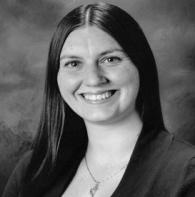Danielle Kuffler, from Issue 2 and 3, talks about her perception of “work,” how that perception has changed, and what “work” she is looking forward to doing in the future.
 I am a tutor at a community college writing center in south Phoenix. Since graduating from ASU two years ago, I have been a nanny, a waitress, a bartender, and a freelance copywriter, among other things. When I started college, I viewed work as something physical with immediately visible results. I thought it meant serving others, and I thought it defined who you are. After holding an internship with Superstition Review, I knew that work had more meanings. I learned work can have tangible and rewarding results over a period of time, work can involve your brain and not only your hands, and a job is not who you are.
I am a tutor at a community college writing center in south Phoenix. Since graduating from ASU two years ago, I have been a nanny, a waitress, a bartender, and a freelance copywriter, among other things. When I started college, I viewed work as something physical with immediately visible results. I thought it meant serving others, and I thought it defined who you are. After holding an internship with Superstition Review, I knew that work had more meanings. I learned work can have tangible and rewarding results over a period of time, work can involve your brain and not only your hands, and a job is not who you are.
Superstition Review was still in its early stages when I was an intern. I helped write a manual for future interns, and Trish was constantly coming up with new approaches to make the publication better. When the site finally launched at the end of the semester, I felt proud of the long hours of sometimes tedious work. I gained appreciation for working towards a long-term goal.
Tutoring recreates this feeling in miniature. Each session is an opportunity for growth and learning, and at the end, I try to impart to students what change took place in even just 10 minutes. I want them to be proud of their work and look forward to making it even better. Tutoring takes patience and foresight. For each session with a student, I first assess what the student should take away from our meeting, and then set up a structure in my mind that will best utilize our time. Sometimes we will spend 30 minutes talking about sentence structure or verbs, and other times we create an outline for a long research paper.
As solicitations coordinator at Superstition Review, I honed my planning skills. I quickly learned that without attention to detail and structured use of time, I would lose control of the solicitations process. Equally important was clear and quick email communication with artists and fellow interns. Being able to get to the point and communicate clearly has served me well as a tutor working with a diverse student body.
I’ve struggled with committing to a career, but it helps to remember that a job is not who you are, even when you care deeply about what you’re doing. Being part of Superstition Review prepared me to pursue a career I feel something for. Nothing excites me more than diagramming a sentence with a student. Superstition Review challenged me to discover things not only about publishing, but also about myself. Taking all sorts of jobs and internships allowed me to see different ways of living, and I’ve slowly built confidence in and appreciation for my talents and skills. I plan on pursuing a master’s degree in linguistics in the near future, and I know my time at Superstition Review will continue to be a source of pride and motivation to grow, change, and do good work.
